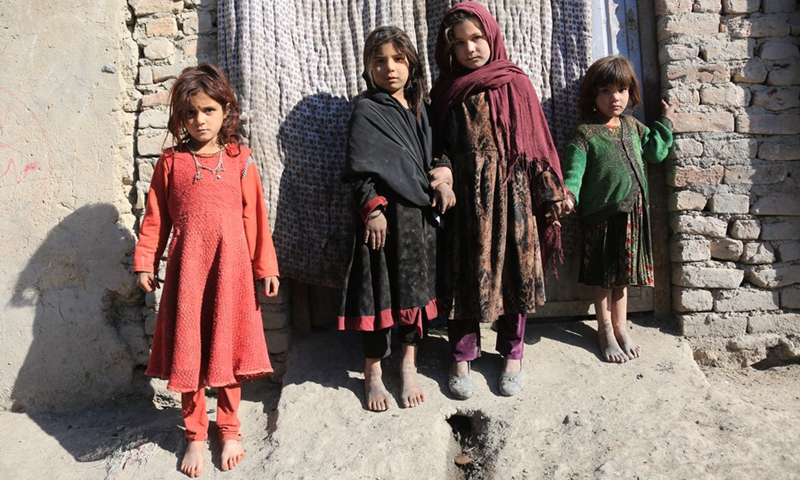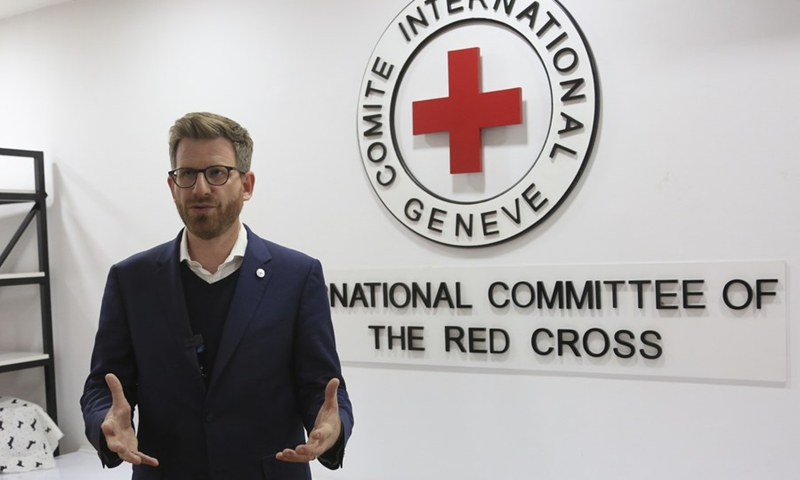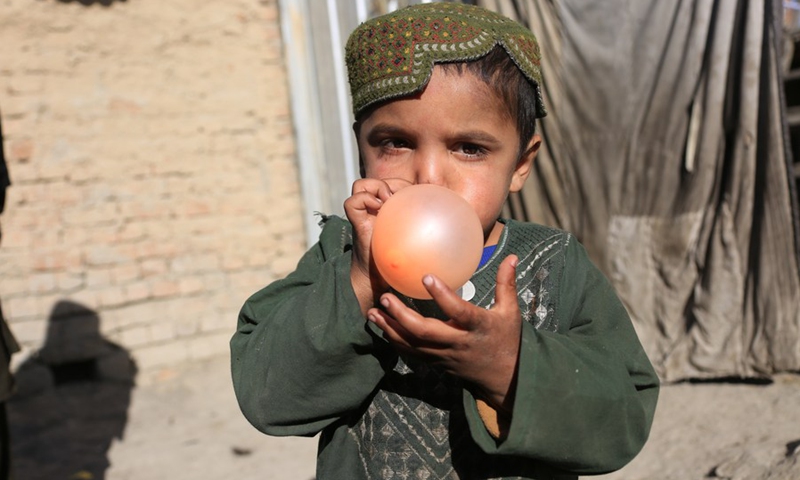
Children are seen at an internally displaced people's camp in Kabul, Afghanistan, Nov. 29, 2022.(Photo: Xinhua)

Martin Schüepp, director of operations of the International Committee of the Red Cross (ICRC), speaks during an exclusive interview with Xinhua in Kabul, Afghanistan, Nov. 22, 2022.(Photo: Xinhua)

A child blows up a balloon at an internally displaced people's camp in Kabul, Afghanistan, Nov. 29, 2022.(Photo: Xinhua)
The U.S.-initiated sanctions imposed on the Taliban-run establishment in Afghanistan has undermined vital humanitarian aid supply to the war-torn country, Martin Schüepp, director of operations of the International Committee of the Red Cross (ICRC) said.
"For the moment we are continuing to operate. I think one of the important challenges is indeed the sanctions that have been imposed. For example, the banking sector and so that makes our operations more difficult for us," Schüepp told Xinhua in an exclusive interview.
Following the withdrawal of the U.S.-led forces from the Asian country, Afghanistan's assets worth more than 9 billion U.S. dollars were frozen by the United States as part of its sanctions on the new rulers of the war-torn country.
"It is key that all sanctions have humanitarian exemptions, which allows humanitarian organizations such as the ICRC to operate and to be able to reach people in need," Schüepp said.
Children are seen at an internally displaced people's camp in Kabul, Afghanistan, Nov. 29, 2022. (Photo by Saifurahman Safi/Xinhua)
"It is key that all sanctions have humanitarian exemptions, which allows humanitarian organizations such as the ICRC to operate and to be able to reach people in need," director of operations of the International Committee of the Red Cross (ICRC) said about the dire situation of Afghanistan.
KABUL, Dec. 1 (Xinhua) -- The U.S.-initiated sanctions imposed on the Taliban-run establishment in Afghanistan has undermined vital humanitarian aid supply to the war-torn country, Martin Schüepp, director of operations of the International Committee of the Red Cross (ICRC) said.
"For the moment we are continuing to operate. I think one of the important challenges is indeed the sanctions that have been imposed. For example, the banking sector and so that makes our operations more difficult for us," Schüepp told Xinhua in an exclusive interview.
Following the withdrawal of the U.S.-led forces from the Asian country, Afghanistan's assets worth more than 9 billion U.S. dollars were frozen by the United States as part of its sanctions on the new rulers of the war-torn country.
"It is key that all sanctions have humanitarian exemptions, which allows humanitarian organizations such as the ICRC to operate and to be able to reach people in need," Schüepp said.
The ICRC official made the remarks amid increasing poverty and high rate of unemployment in war-torn Afghanistan as more and more Afghans leave their homeland to find jobs abroad and send remittances for their families facing chilly winter and economic hardship at home.
The official of the ICRC, which has been operating in Afghanistan over the past 30 years, described the humanitarian situation as "very dire" in the country, saying more than half of the country's population is in need of humanitarian aid.
Schüepp also said that poverty had led to an increase in the cases of pneumonia and malnutrition among children in the war-ravaged country.
Earlier, aid agencies warned that more than 22 million out of the 35 million population of Afghanistan are facing acute food insecurity, warning the country will face catastrophe if necessary assistance is not sent ahead of winter.
"So, overall, we continue to operate throughout the country. We continue to implement our activities, and actually to increase our activities in the country," the official said.
"Also, one of our main programs is supporting hospitals ... around the country to make sure that all Afghans in need receive care," the official said.
